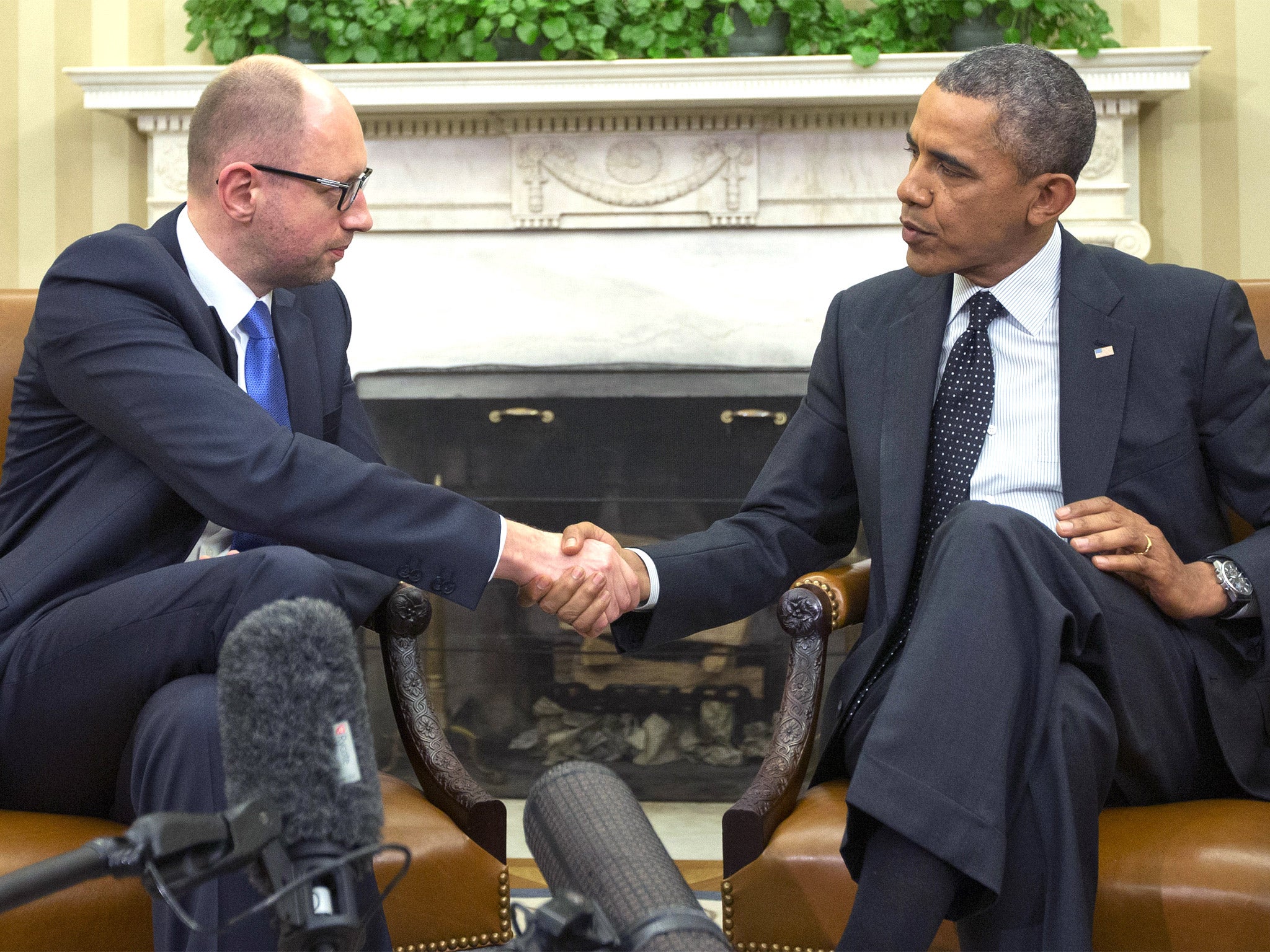Ukraine crisis: ‘We will stand with Ukraine’, says President Barack Obama as Russian troops mass on Crimean boarder

Support truly
independent journalism
Our mission is to deliver unbiased, fact-based reporting that holds power to account and exposes the truth.
Whether $5 or $50, every contribution counts.
Support us to deliver journalism without an agenda.

Louise Thomas
Editor
Barack Obama held a high-profile meeting with Ukraine’s Prime Minister, Arseniy Yatsenyuk, at the White House in a calculated display for the Kremlin of the West’s backing – moral, financial and diplomatic – for the embattled new government in Kiev.
“We will stand with Ukraine,” Mr Obama declared afterwards, before repeating his warning that Russia would have to pay a cost if it failed to change its policies.
The meeting came just four days before Sunday’s referendum in Crimea on whether the territory should rejoin Russia, amid accusations by Kiev that Moscow was engaged in a major military build-up along the border.
According to the Ukrainian authorities, the build-up, involving more than 80,000 troops, created “the threat of a full-scale invasion”. That claim was swiftly denied by the Russian Deputy Defence Minister. But it only heightened tensions, given that President Vladimir Putin pledged his readiness “to use all means” to protect the Russian-speaking population in eastern Ukraine.
Tonight, as Nato sent two aircraft to monitor Ukrainian and Black Sea airspace, the impasse appeared total. Hours before Mr Yatsenyuk met Mr Obama, the G-7 issued a joint statement declaring they would not recognise the referendum, which the West regards as illegal. “We call on the Russian Federation to immediately halt actions supporting a referendum on the territory of Crimea regarding its status, in direct violation of the constitution of Ukraine,” the statement said.
But that demand seemed certain to fall on deaf ears. Thus far Moscow has brushed off every Western retaliation – from visa bans affecting unspecified individuals to the threat of economic sanctions and the suspension of planning for the G-8 summit scheduled for Sochi in June.
Even so, the two sides are continuing to talk, if only past each other. Today Mr Putin spoke by phone with President François Hollande of France, but the differing accounts of the conversation merely underlined the gulf between them. For the Kremlin, it was a chance to discuss ways of gaining “international support” for a solution to the crisis. In Paris, Mr Hollande denounced the “ unacceptable annexation” of Crimea.
Separately, the US Secretary of State, John Kerry, is holding hastily arranged talks in London tomorrow with his Russian opposite number Sergei Lavrov.
Meanwhile Mr Yatsenyuk was trying to turn symbolic support into financial assistance, not least to boost defences against a Russia that is “armed to the teeth”.
While the EU has promised $15bn of aid, the US thus far has offered loan guarantees worth only $1bn, yet to be approved by Congress. But even the larger sum falls well short of the $35bn which the Ukrainian authorities say is needed by the end of 2015 to stave off financial collapse.
Subscribe to Independent Premium to bookmark this article
Want to bookmark your favourite articles and stories to read or reference later? Start your Independent Premium subscription today.
Join our commenting forum
Join thought-provoking conversations, follow other Independent readers and see their replies
Comments